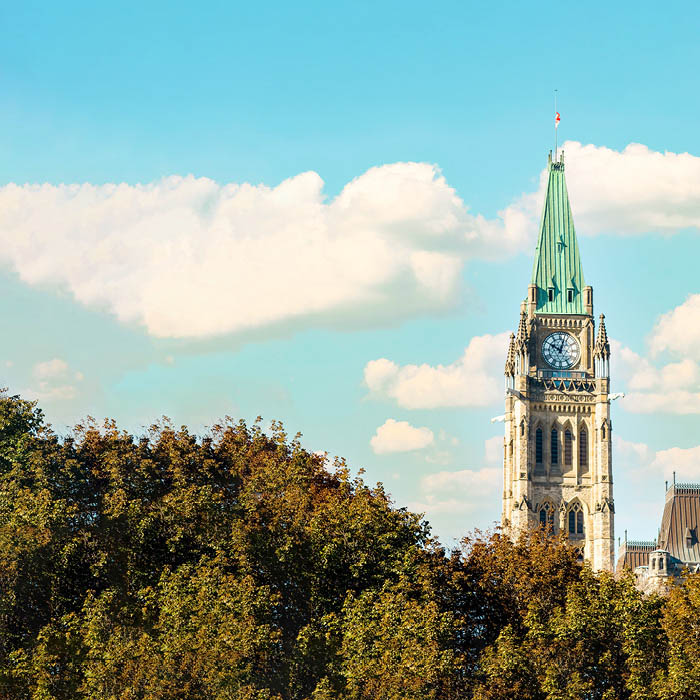Toronto, March 28, 2023 - The Toronto Region Board of Trade is pleased to see the Federal budget tabled today by Canada’s Deputy Prime Minister and Minister of Finance, the Honourable Chrystia Freeland.
We are pleased to see budget commitments supporting:
The Clean Economy
The global cleantech market is projected to exceed roughly $3.3 trillion by 2022, and Canada is strongly positioned to lead. The Budget makes strides towards securing Canada’s potential and plays well to Ontario’s strengths. This powerful pro-growth bundle includes a new Clean Technology Manufacturing Tax Credit, a Clean Hydrogen Investment Tax Credit, a 15 percent Investment Tax Credit for clean electricity, and an enhanced and extended reduced tax rate for zero-emission technology manufacturers, including nuclear equipment.
The centerpiece of the clean tech package is the 30 percent, $900 million per year, refundable Clean Technology Manufacturing Tax Credit, which will offset the cost of investments in new machinery and equipment used to manufacture or process key clean technologies. This covers zero-emission vehicles, batteries and battery components, and extraction or processing of critical minerals. Importantly, it will also stifle the competitive pull of investment dollars away from Canada to the US due to the Biden Administration’s landmark IRA clean tech incentives.
Combined with the provincial Ontario Made Manufacturing Tax Credit for SMEs, the federal budget significantly expands incentives for manufacturers to accelerate the transition to low carbon production – a crucial competitive advantage in coming years. Canada’s ability to lead in the Climate Economy, attract jobs and investment, and strengthen productivity, will be a critical factor in growing prosperity for the next generation.
National Supply Chain
Budget 2023 also proposes to provide $27.2 million over five years to establish a Transportation Supply Chain Office that will work with industry and government to respond to disruptions and build reliability across Canada's transportation supply chain infrastructure. This serves as a recommitment to Canada’s much-needed National Supply Chain Strategy.
Addressing the Talent Shortage Through Immigration
Workforce challenges, such as chronic worker shortages and costly administrative red tape, are cited as top concerns for Toronto Region businesses. The Federal government’s commitment to increased immigration must be accompanied by a comprehensive national settlement strategy to ensure the right programs, policies and supports are in place to ensure new immigrants can thrive in tomorrow’s economy. The Toronto Region accepts a significant share of the nation's newcomers and must receive proportionate federal support.
Support for the Toronto Region’s Growth and Competitiveness
The City of Toronto is a magnet for investment, jobs, and talent, but is facing extraordinary fiscal challenges, exacerbated by major expenses beyond the city’s mandate. Big-ticket investments like transportation infrastructure require increased federal contribution. As the nation’s economic engine, Toronto’s budget shortfalls – estimated to reach a whopping $46 billion over the next decade--have the potential to disrupt growth and competitiveness for both the Toronto Region and Canada as a whole. The City of Toronto has called for immediate support from the Government of Canada for COVID-19 shortfalls - $235 million to match the Government of Ontario’s confirmed commitment.
The Toronto Region Board of Trade will continue to advocate for the federal government to assume its fair share of funding for Toronto in its areas of responsibility, paving the way for sustainable growth.
“The world is moving toward clean energy and our ability to participate in the global climate economy is critical to our long-term success on the global stage. This budget includes a number of significant tax credits and investments to pave the way to a net-zero economy,” said Jan De Silva, President and CEO of the Toronto Region Board of Trade. “However, the Toronto Region continues to struggle under the weight of its own growth and in recovering from the pandemic. The City requires much more from upper tiers of government to ensure a sustainable future. We look forward to continuing our engagement with the Federal and Provincial governments to ensure the Toronto Region receives its fair share.”
Unlike the Government of Ontario, the federal government is not projecting a clear path to balance its budget over the fiscal plan. With $43 billion in new spending over the next six years – more than offsetting the tax revenue windfall from inflation – deficit projections increase considerably from last November’s Fall Economic Statement. With debt financing costs nudging two percent of GDP, the Board underscores the critical importance of charting a course to a balanced budget.
The Toronto Region Board of Trade is one of the largest and most influential business chambers in North America and is a catalyst for the region’s economic agenda. We pursue policy change to drive the growth and competitiveness of the Toronto region and facilitate market opportunities with programs, partnerships and connections to help our members succeed – domestically and internationally.
Media Contact: Megan Stangl, Communications and Public Affairs Manager | media@bot.com



